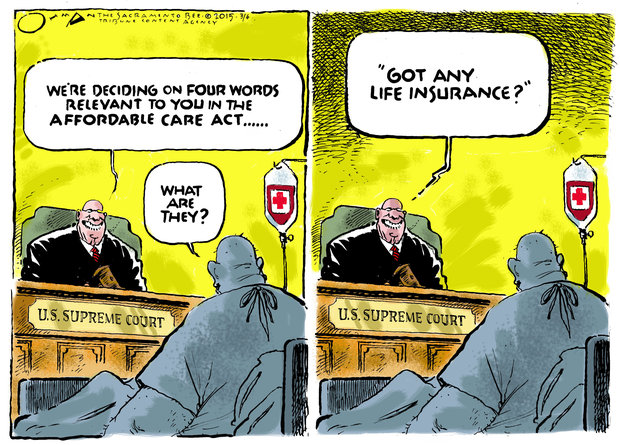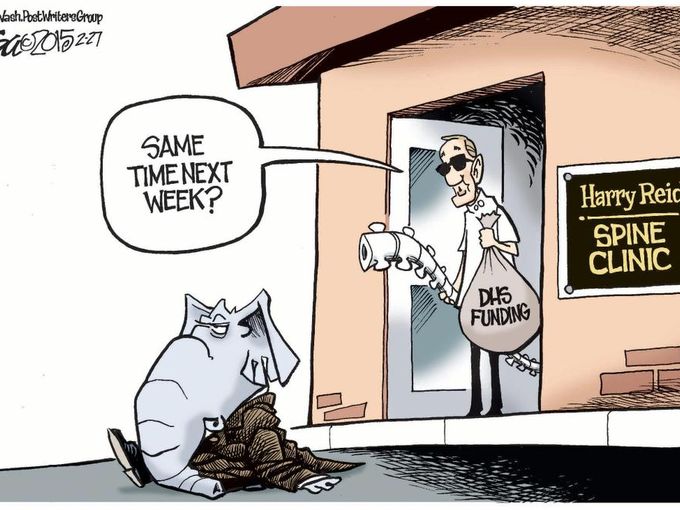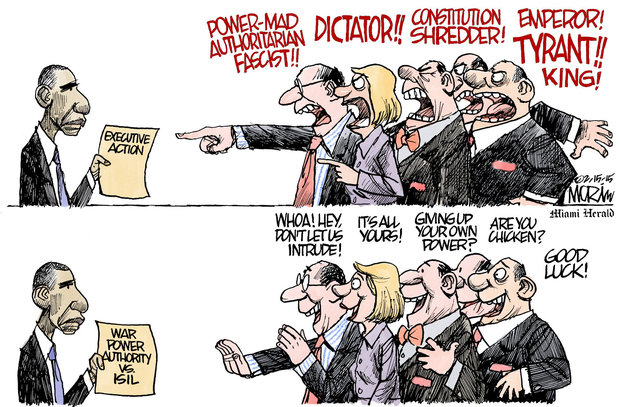Bloomberg’s Josh Rogin reports that a group of 47 Republican senators, led by freshman Senator Tom Cotton (R-AK), wrote an open letter to Iran’s leader Ali Khamenei, warning that any nuclear deal Iran signs with President Obama’s administration is unlikely to last after Mr. Obama leaves office. Here is a snippet:
It has come to our attention while observing your nuclear negotiations with our government that you may not fully understand our constitutional system…Anything not approved by Congress is a mere executive agreement…The next president could revoke such an executive agreement with the stroke of a pen and future Congresses could modify the terms of the agreement at any time.
The full text of the letter is here. Seven Senate Republicans did not sign the letter. It is a pretty condescending way to insert yourself into nuclear negotiations being conducted by 6 nations with Iran. Their premise is that Iran’s leaders “may not fully understand our constitutional system,” and in particular may not understand the nature of the “power to make binding international agreements.” The problem is that these Senators seem to have an incomplete understanding of our constitutional system.
Their letter states that “the Senate must ratify [a treaty] by a two-thirds vote.” Yet, a Senate web page says:
The Senate does not ratify treaties. Instead, the Senate takes up a resolution of ratification, by which the Senate formally gives its advice and consent, empowering the president to proceed with ratification…
Ratification is the formal consent that the nation will be bound by the treaty. Senate consent is a necessary, but not sufficient condition of treaty ratification in the US.
None of this detracts from Sen. Cotton’s message that any administration deal with Iran might not last beyond this presidency, but, in a letter purporting to teach a constitutional lesson to a foreign government, the Republicans have made an embarrassing error.
But it’s no secret that the administration wasn’t planning to seek Congressional approval to lift Iranian sanctions if a nuclear deal is struck. The NYT reported last October:
The Treasury Department, in a detailed study it declined to make public, has concluded Mr. Obama has the authority to suspend the vast majority of those sanctions without seeking a vote by Congress, officials say.
While Mr. Obama cannot permanently terminate sanctions, Congress can take that step. Mr. Obama’s advisers concluded last year that the White House would probably lose such a vote. The Times quoted a senior WH official: (brackets by the Wrongologist)
We wouldn’t seek congressional legislation [for] any comprehensive agreement for years…
It’s no secret that Republicans don’t like what they’re hearing about the negotiations with Iran, and they have hit on an interesting tactic for weakening them. Republicans would have trouble passing any new Iran sanctions in order to disrupt a deal, since they would have limited Democratic support and would need to overcome a presidential veto.
But, you don’t need to hold a vote to write a letter.
So, these 47 Republican Senators usurp the role of the president during a nuclear treaty negotiation. The Constitution does not give the Senate the right to undertake negotiations with a foreign government, or to threaten a government we are negotiating with, as a part of their role to “advise and consent” to treaties.
Having a world view that distrusts Iran is understandable, but trying to undermine good faith negotiations with a foreign government just hurts America. It is clear that Mr. Obama has been building his deal on unsteady ground, particularly since Democrats lost control of the Senate last November.
It is also true that Republicans are doing Netanyahu’s bidding, attempting to scuttle any deal that slows or halts Iranian nuclear enrichment, but does not completely dismantle Iran’s program.
We are so lucky to live in an age when the real patriots (Republicans) understand that laws do not apply to them. Laws like the Logan Act, passed over 200 years ago, which forbids unauthorized meddling in foreign affairs.
These are the same people that equated simply questioning the Bush government’s actions in Iraq with terrorism, by burning Dixie Chicks CD’s, back when people bought CD’s.
Quite the elastic set of principles in that bunch.
With this letter, they’re beating the drums for a larger war in the Middle East, this time, with Iran, much in the same way they did in Iraq. Republicans have become enablers of the politics of fear. They have become far too easy to rattle, and too willing to say no preemptively on so-called principle.
Rather than shaking our heads and moving on, we need to remember that, when you don’t turn out for elections, things can always get worse. This is a textbook example.



















